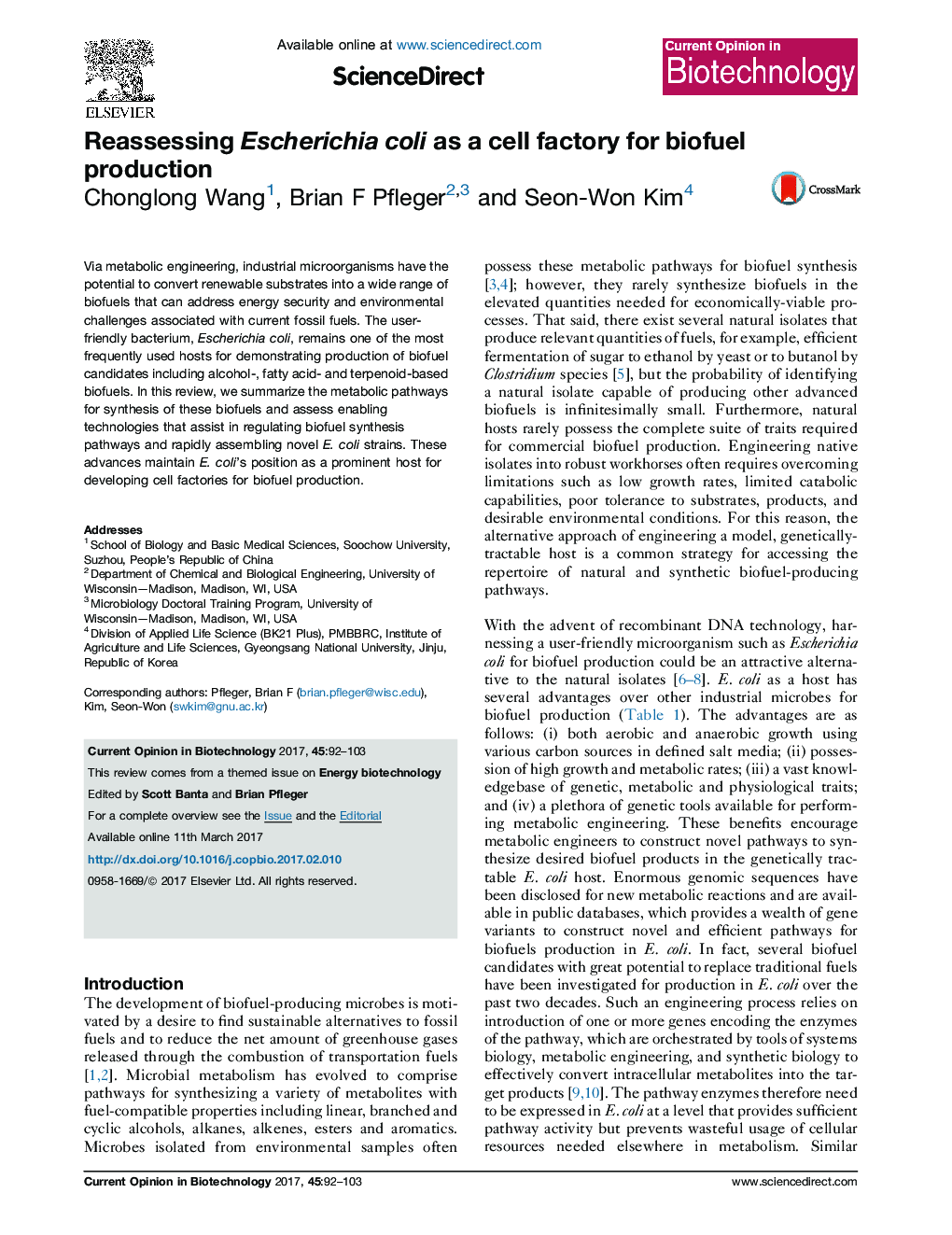| Article ID | Journal | Published Year | Pages | File Type |
|---|---|---|---|---|
| 6451655 | Current Opinion in Biotechnology | 2017 | 12 Pages |
•Biofuel production has been achieved in Escherichia coli by construction of several metabolic pathways.•The emerging technologies shows great potential in pathway engineering and stain manipulation.•Tolerance engineering was required to construct an ideal biofuel producing E. coli host.
Via metabolic engineering, industrial microorganisms have the potential to convert renewable substrates into a wide range of biofuels that can address energy security and environmental challenges associated with current fossil fuels. The user-friendly bacterium, Escherichia coli, remains one of the most frequently used hosts for demonstrating production of biofuel candidates including alcohol-, fatty acid- and terpenoid-based biofuels. In this review, we summarize the metabolic pathways for synthesis of these biofuels and assess enabling technologies that assist in regulating biofuel synthesis pathways and rapidly assembling novel E. coli strains. These advances maintain E. coli’s position as a prominent host for developing cell factories for biofuel production.
